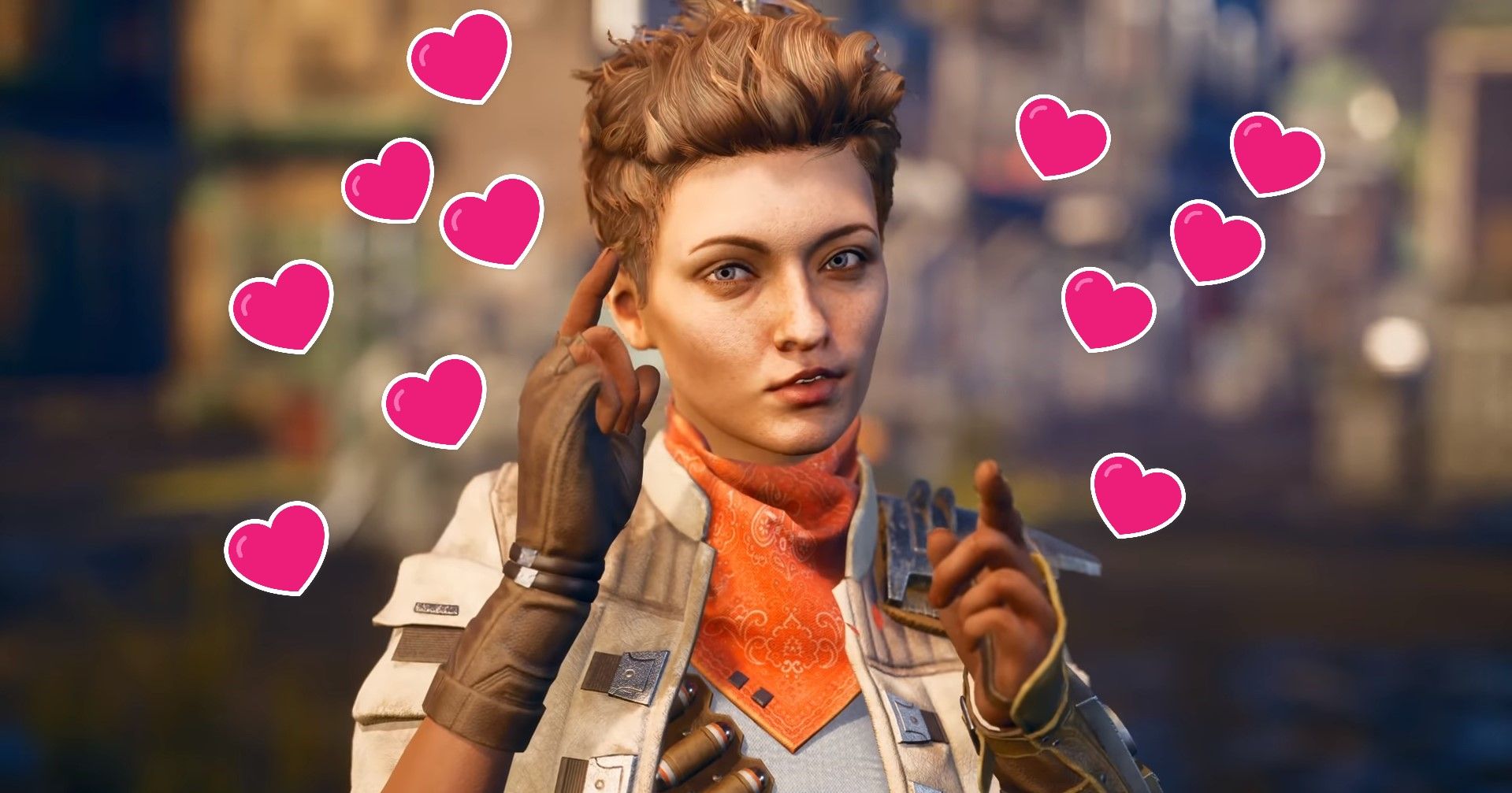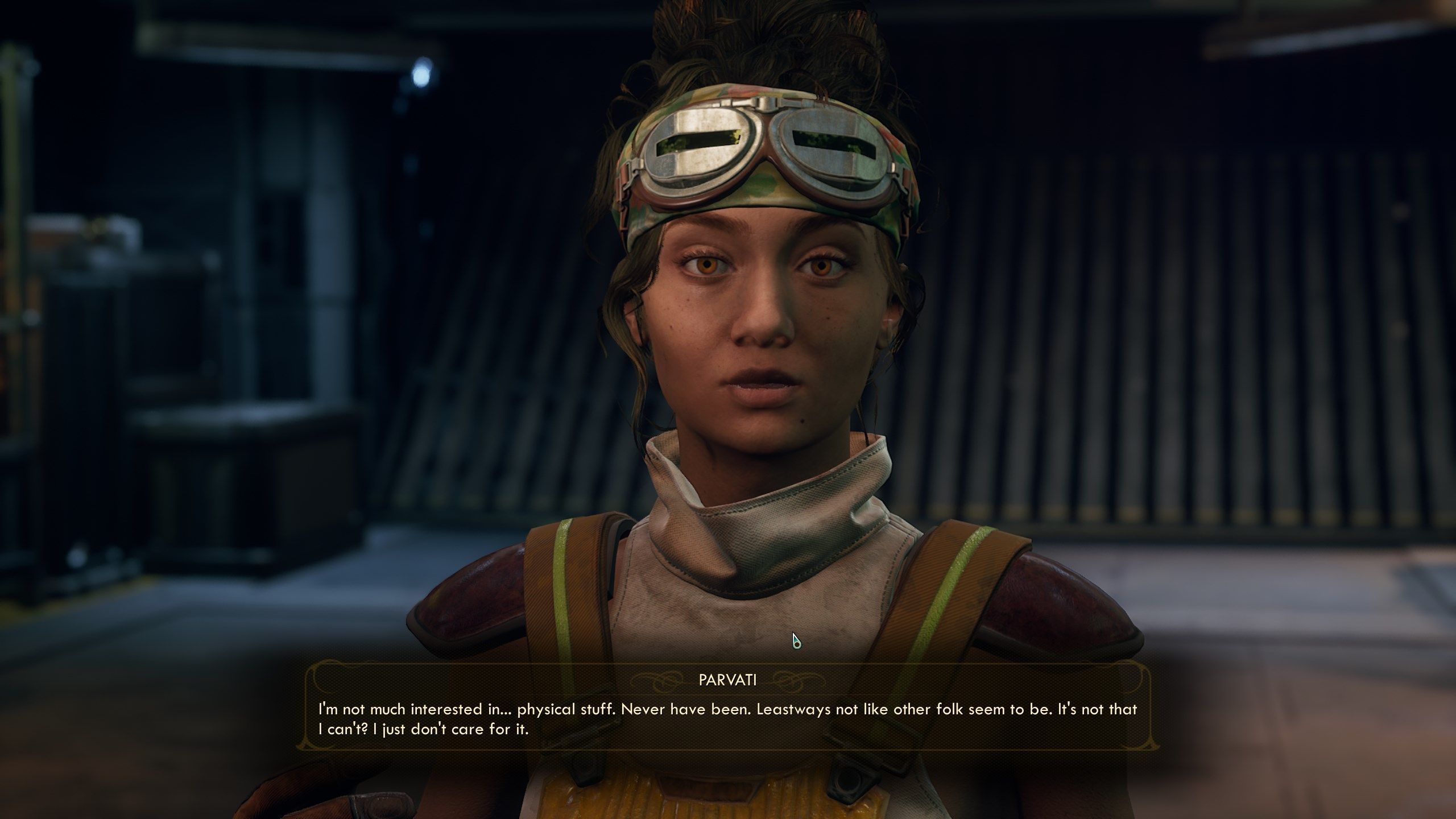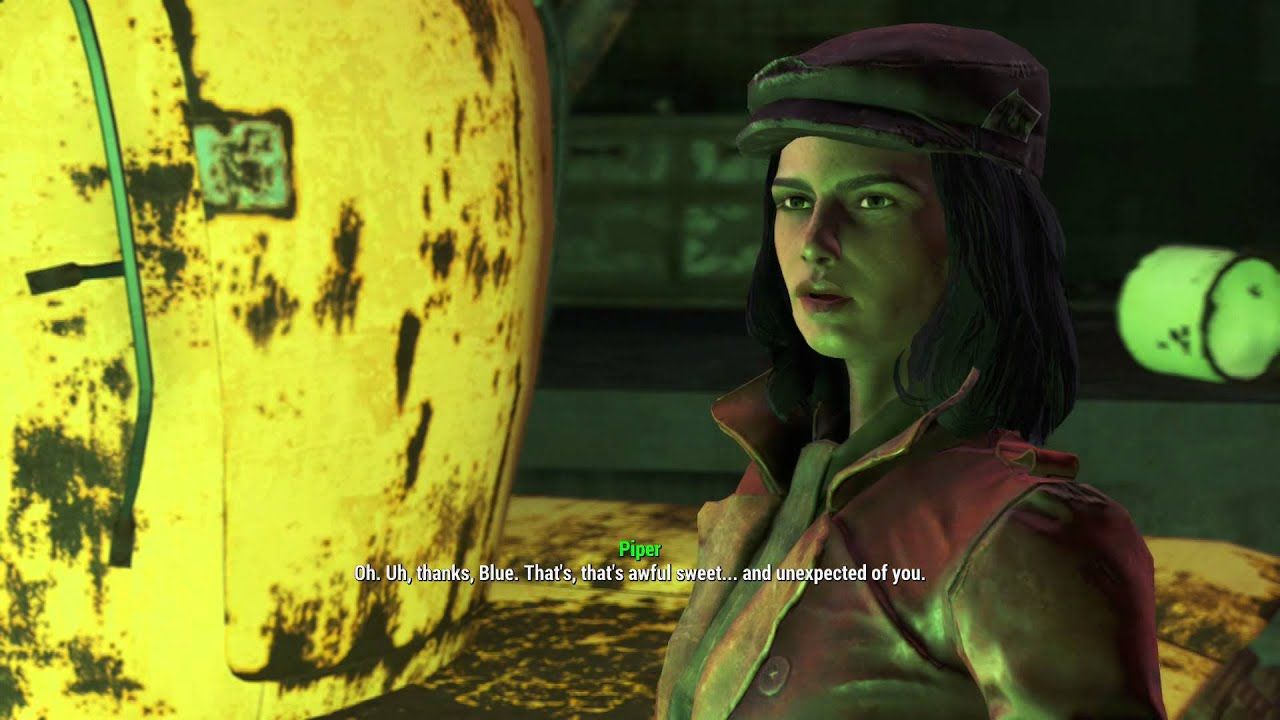The Outer Worlds was released this week, and impressed many fans with its immersive roleplaying options. However, the game is missing a common element of many modern RPGs: romance options. The game includes interesting companions that respond to your actions and the world around you, but you can’t romance any of them. The question is, is this necessary for a good game, or are romances an unnecessary element?
The Outer Worlds co-director Leonard Boyarsky had a good reason to not include romance. He claims that it leads players to put self-imposed restrictions on their roleplaying in order to achieve the conditions required to make the romance happen, rather than doing what they want. Boyarsky wanted to avoid the “minigame of how do I seduce this companion,” and let players focus on roleplaying.
It was also a matter of resources. In game design, resources are always finite. Focusing on one aspect of the game inevitably means that other elements get less attention, since all of these things take manpower to work on. Adding romance options would mean less resources could be spent on other elements, and Boyarsky wanted to focus on roleplaying and making the companions well-rounded, realistic individuals instead.
So, that’s why The Outer Worlds doesn’t have romances, but does it need romances?
Maybe the best way to determine this is to look at how other RPGs deal with romance. Skyrim has a simple romance system; once you complete a quest for someone you can propose to them. Sometimes this means that you deliver a letter for someone, then show up a few months later, get married, and move in with them.
So, maybe Skyrim doesn’t paint RPG romance as an indispensable game mechanic, but what about games with more in-depth companion romances like Fallout 4. In Fallout 4, companions have an affinity track; doing things they like advances their affinity, doing things they dislike moves it back, and at the maximum affinity some of them can be romanced. Ideally, the intention is that as you spend time with your companion and do things that they like or that align with their moral compass and they like you more, eventually considering a relationship with you.
The problem with this is that there are ways to game the system. Players have put out guides on how to speedrun to maximum companion affinity without having to put the time in. It breaks the game’s immersion to have Piper fall in love with you because you picked and relocked a door a hundred times in front of her. Similarly, there are guides for romancing every companion in Dragon Age Inquisition as well.
It seems like Boyarsky is right in that romances lead to players making decisions based on how to romance a companion rather than how they would rather be playing. No one makes a guide for how to roleplay, except in these instances where there is a romance – seen as a sort of achievement – to be gained.
This is a problem inherent in video games. Games as a medium are task-based. Even roleplaying games, which emphasize player choice, are task-based. The player completes quests. A good roleplaying game will give the player multiple options to complete the quests, but the game is still centered around completing tasks. This is not a bad thing, just a feature of the art form. The problem arises when games add non-quest romance options, which are inevitably treated as quests by some players due to the nature of the medium.
The problem is, this breaks immersion because people don’t work like that. Efficiency is not a trait many look for in relationships. The better you are at playing the game, i.e. completing tasks the game offers with the maximum efficiency, the more forced a companion romance is going to seem when you reach its end. If The Outer Worlds wants to make the companions seem like they have realistic and vast internal worlds, having them fall in love after watching the protagonist attach and take off a sniper scope over and over is antithetical to that.
This isn’t to say that romance options are always bad. If handled well, they can be a welcome addition that lets the player feel closer to a certain companion, but there is something inherent to video games as a storytelling medium that makes romance difficult to design. So no, it’s not a bad thing that The Outer Worlds doesn’t let you romance Vicar Max, as much as you might want to.



